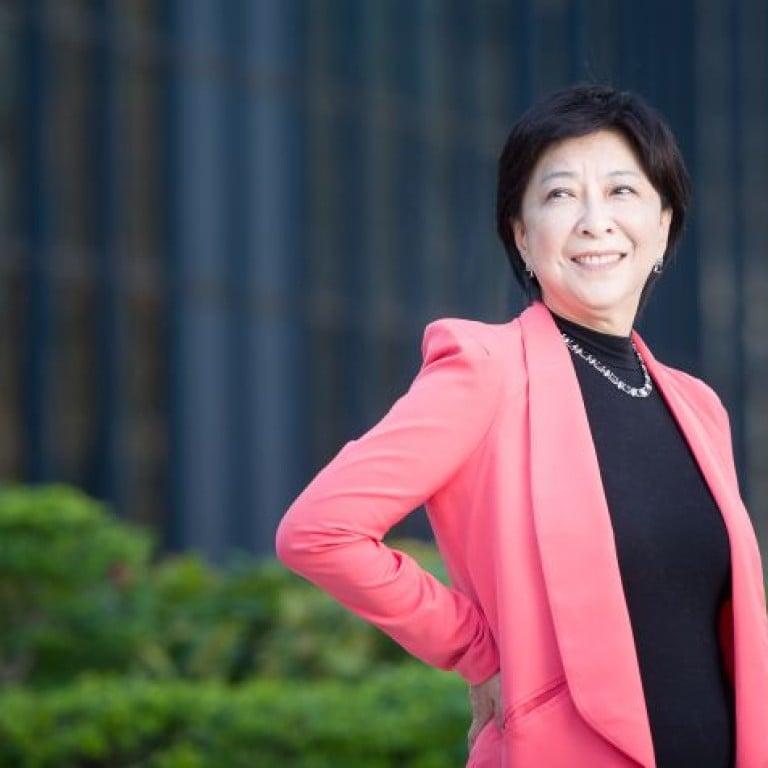
Ann Chiang Lai-wan Once Thought Marriage Was a Burden
The businesswoman and DAB lawmaker is well known for her no-nonsense personality and her fierce attacks on pan-democrats in Legco.
I was born and raised in Hong Kong. In 1949, like many other refugees, my father came here from mainland China. My family was poor. I was born in Tiu Keng Leng, where most mainland refugees lived. Then we moved to a wooden house on a rooftop in Diamond Hill, before moving to Tai Hom Village and living in a stone house with a metal roof. That’s where my father started his business. I have seven siblings and I’m the second eldest. My elder sister got married young and left Hong Kong. So even though I’m the second daughter I had to take care of my five sisters and one brother. My father started his mechanical manufacturing business from scratch.
By the 70s, we could finally afford to live in a building. I was a naughty child. I walked for an hour to my elementary school in Wong Tai Sin because the school bus driver complained about me punching him in the head while he was driving. My five sisters were always bullied by other kids. I had to protect them. That’s why I’ve been intimidating ever since I was young. When other kids stole our bags, I would chase them and beat them up.
When I was young we had to share a single soft drink bottle between us. To drink a whole bottle myself was my dream. Things got better and I had the chance to study abroad. I went to college in Canada. I studied psychology in college, hoping to become a psychiatrist. There were many cases of juvenile delinquency in Hong Kong. I wanted to do something for society. After I graduated my father asked me to come home and help with our family business. After about 10 years, his business was back on track and became a listed company.
My love life was simple. I had a few relationships. But I was always the one who left. There was no point to getting married as I was used to protecting myself. I could take care of myself physically and materially. Marriage would be an extra burden for me. I met my husband when I was 40. We started out as friends. It was comfortable chatting to him. He was very serious about the relationship.
He told me that I was the one he’d searched for 40 years. I felt like there was a halo around me. I fell in love immediately. There were other boys approaching me, of course. But he drove them all away. Two months after we met, we decided to get married. We went to my father and asked for his permission—he told us to wait two years. I was thinking, “Come on, daddy, I’m already 40!” Many friends have said we look very much alike. Husband and wife are always complementary to each other. He offsets my shortcomings; I give him a feeling of home. But we have a common trait—we never hold a grudge.
I started my own business in 1992, covering shopping malls and telecommunication. I joined the DAB in 2005, hoping to help with local affairs. I proposed several major policies—one of which was life planning education. When young people prepare for college, they may not know that their major will affect their future. Many of them take four years to realize they studied something they didn’t like—and so enter a career they have no interest in. I’m planning to propose a “baby fund” to the government, where all babies would have funds reserved for college tuition, buying a flat or medical emergencies.
The anti-government camp has always criticized the pro-Beijing parties. But at least we are creating something. What have they done for society, except oppose things? I’m not saying all policies from the government are correct—they are wrong at times. I will criticize them if there’s something wrong. But I do it in a mild manner, because my goal is to make things better.
I’ve said wrong things sometimes. I’ll apologize when I do. Some young people may have different political views from me. But everything I do is for their own good—like my psychiatric practice, which is also for helping young people. I like all youngsters, from the bottom of my heart. I don’t hold a grudge against anything they do. Just like a mother and her children—she would never lay the blame on them.

